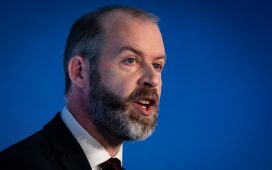| Updated:

Official data this week is expected to show inflation moved further away from the Bank of England’s two per cent target in November, dealing another blow to the government after a contraction in GDP.
The headline consumer price index rate, due Wednesday, is forecast to rise to 2.7 per cent in November, according to a FactSet consensus. That would mark the second consecutive monthly rise after October’s 2.3 per cent reading.
Falling inflation earlier this year had given members of the BoE’s Monetary Policy Committee (MPC) confidence to lower interest rates in August and November.
The headline rate fell to 1.7 per cent in September but has since been driven higher by rising energy costs. Services inflation, which is being closely monitored by the MPC for signs of domestic pressures, has also remained elevated.
Inflation is expected to rise further in the coming year, with rate-setters taking a more gradual approach to easing monetary policy than other Western central banks. The BoE is predicted to leave rates on hold at its next meeting on Thursday.
“Driving the price rises through November is a combination of stronger food prices – with the tobacco duty increase coming through strongly in November – and higher oil prices,” said Sanjay Raja, chief UK economist at Deutsche Bank, which forecasts inflation of 2.48 per cent.
“Softer goods deflation than usual around this time of year, we think, will also support annual inflation momentum.”
Policymakers are signalling caution as they assess the potential inflationary impact of Labour’s first Budget, which raised taxes by £41bn per year.
The BoE’s latest quarterly Inflation Attitudes Survey, published on Friday, showed British households expect higher inflation over the next 12 months for the first time since August 2023.
If inflation were to rise again, it would create a further headache for the government after figures out last week showed the UK economy unexpectedly contracted by 0.1 per cent in October.
That means the economy has stopped expanding since Labour took power in July on a promise to boost growth.
Elsewhere, research published by Make UK on Monday suggested business confidence among Britain’s manufacturers has fallen at the sharpest rate since the start of the pandemic.
Its survey of more than 300 companies found almost nine in 10 expected their business costs to increase due to new employment reforms, with the Budget also set to add substantial extra costs.
Other highlights in a busy week of economic data include labour market figures for October, including unemployment, due on Tuesday.
‘Flash’ purchasing managers’ indices for December will be released on Monday, while fresh numbers for retail sales and public sector finances are due on Friday.











